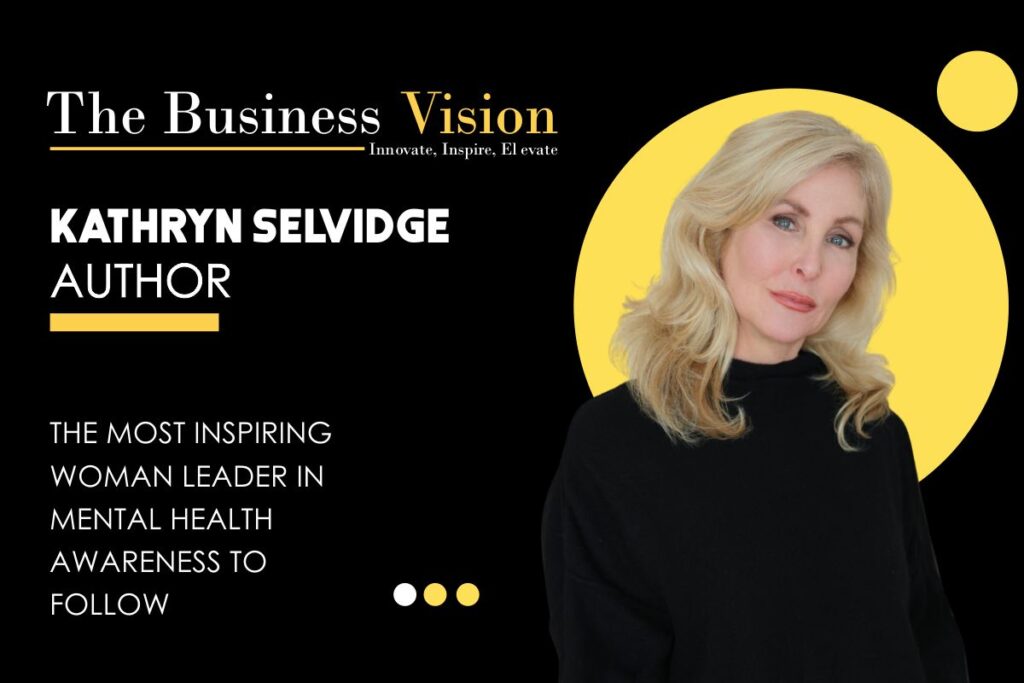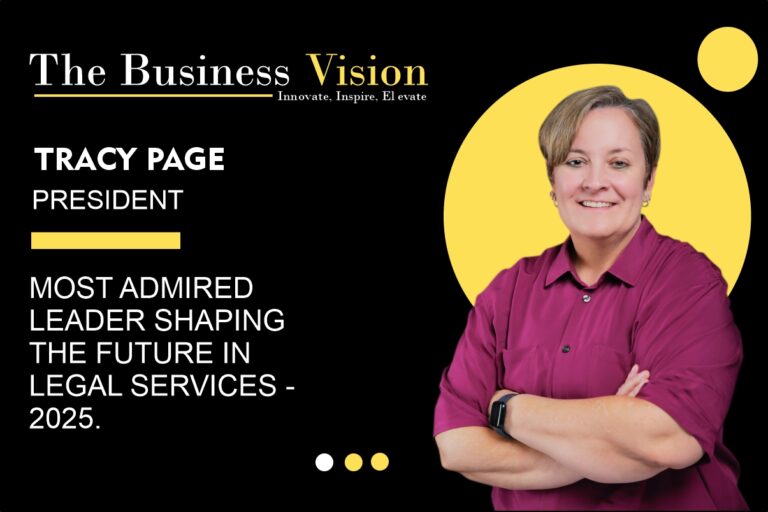The world today is competitive, it’s hyperconnected, and the intensity of life has now proliferated in one part that’s supposed to be a sacred haven – the childhood. Children today are being raised in a highly stimulated environment and often face emotional and psychological challenges that were once rare and misunderstood.
Anxiety, depression, identity confusion, peer pressure, family trauma, the burden of mental illness within the home have come to be common issues, and yet the conversations around them still remain to be difficult.
Primitive and developing minds of children often find dealing with issues overwhelming, or even talking about them means ‘causing trouble’ to some. And so, a difficult spiral starts, a spiral of internalizing pain, of feeling invisible, of struggling with guilt and so much more.
As a result, we’re witnessing a rising tide of mental health concerns among youth: from elevated stress and self-esteem issues to increased rates of self-harm and emotional withdrawal.
But amidst these challenges rises a beacon. A person of keen observation, someone with a deep sense of empathy.
Featuring for the cover story of our latest issue The Most Inspiring Women Leader in Mental Health Awareness to Follow is the story of Kathryn Selvidge.
Giving a Voice to the Silent Struggles
Juggling multiple roles, Kathryn Selvidge decided to focus her energies on something that mattered, and which had a profound impact – advocating for mental health. With her powerful book- Kloe’s New Start, Kathryn Selvidge has created a safe world for the young minds. The book invites readers to this world which does not shy away from pain, confusion, or even emotional complexity. Rather, this adventure with Kloe helps readers to confront these emotions with empathy, courage, and hope.
The book’s perspective reminds readers that every story has two sides—encouraging a shift in how we view others, while nurturing empathy and challenging preconceived notions.
“I hope parents take time to explore two core themes in the story. First, the Emotional Depth—I want children who have siblings with mental illness to know they are not alone. They can rise above the struggles they face in their younger years and grow into stronger, more grounded individuals. They can truly thrive in life, love, and friendship. Second, the Educational Value—this story offers young minds an important lesson: that judging others too quickly is often misguided. Instead, it inspires a mindset rooted in empathy, understanding, and open-hearted thinking from an early age.”
Facing the Unspoken Truths of Mental Health
Advocating for mental health—especially within families and among young children—has never been easy. These conversations are difficult to initiate. With her keen observation, Kathryn has come to notice that mental health issues are often briefly acknowledged, but not truly discussed. As a society, she observes, we still are frightened of such topics. And this fear is not only because of the emotional weight it carries, but is mostly because of the confrontation. Addressing mental health issues, being open about these topics, providing a safe space, all these mean facing the (sometimes harsh) consequences that ripple through one’s own life and the lives of loved ones.
And this isn’t just preaching, Kathryn Selvidge has faced a deep resistance to acknowledging that mental health could be an issue in her own family.
The prevailing belief was, “That happens to other people, not us.” But the reality was different—it was affecting us.
Even today a few of those issues aren’t fully addressed.
Kathryn Selvidge knows firsthand how difficult it can be to confront mental health issues within a family. Her own experience has taught her that denial often becomes the quiet thread that runs through homes affected by mental illness. Her sibling, for example, still refuses to identify as someone living with a mental illness—choosing instead to see himself as simply “different.”
This kind of denial, Kathryn believes, can be one of the hardest parts. “It’s a painful and complicated space to be in,” she explains. “Not just for the person struggling, but for everyone around them. It becomes a lifelong challenge that seeps into every part of life—relationships, identity, and family dynamics.”
Despite the emotional weight of her journey, Kathryn finds hope in the way people have responded to her work. The heartfelt reviews and recognition her first book received reminded her that change is happening. Slowly but surely, more people are beginning to speak openly about mental health. There’s a growing awareness that these issues impact every community and that the silence surrounding them must be broken.
Through her storytelling, Kathryn encourages others to find the courage to face these conversations, even when they feel heavy or uncomfortable. “We all just want to feel seen and understood,” she says. “And when one person chooses to speak up, it opens the door for others to do the same.”
Her work continues to inspire families to look inward, listen deeply, and begin healing—one story at a time.
Turning a Lifelong Calling into Advocacy Through Storytelling
Sometimes, a quiet dream carries the potential, and most probably gives you that much necessary break. So then is it knowing what impact a dream can have? Or is it simply taking action to achieve that dream?
For Kathryn Selvidge, the defining moment in her advocacy journey came when she finally gave herself permission to write the book she had been quietly carrying inside for decades. “I had contemplated writing a children’s book about the impact of having a sibling with mental illness for most of my adult life,” she shares. “But it wasn’t until I sensed a real shift in how people were beginning to talk about mental health that I felt it was the right time to take that leap.”
That leap became the beginning of a meaningful new career path. Writing the first book in what she envisions as a series not only brought Kathryn’s voice into the literary world but also opened doors to advocate for children dealing with emotional struggles within their families.
Inspired by her own experiences growing up as the sibling of a mentally ill older brother, Kathryn created a series that blends semi-autobiographical storytelling with rich, imaginative characters. Drawing from her deep love of animals, she brought to life Kloe, Wreny, and Sir Petey—three expressive cats based on her own pets. Through vivid illustrations and heartfelt narrative, her books help children process complex emotions and situations in a safe, accessible way.
“My hope,” Kathryn Selvidge says, “is that these books do more than entertain. I want them to offer comfort, spark conversations, and empower children to see their own strength in the face of difficult realities.”
Her work is more than a story—it’s a mission to reframe how mental health is understood in childhood.
Challenging Stigma Through Story and Heart
Conversations around mental health in families still carry stigmas and awkward silences. Kathryn, with her work is gently, but powerfully challenging these stigmas. With her book series and the advocacy platform, she brings attention to the often-overlooked experiences of siblings of those living with mental illness—children who are frequently caught in the background of someone else’s struggle.
“Mental health issues within families are still not openly discussed,” Kathryn explains. “And siblings of those who are mentally ill often carry quiet burdens, sometimes even facing stigma just because of their family circumstances.”
Kathryn’s Stories exude comfort, creating a safe space for these siblings to feel seen. It is not only about the challenges these children face, but more about the resilience and strength these kids can discover within themselves. These stories act as a guiding path to the light within. Where the children can’t find a supportive world, these stories guide them on how to get out of difficult situations.
Rightly so, her characters rise above difficult situations and reflect the possibility of healing, empathy, and personal growth. “These stories promote conversation,” she says, “and help families start talking about the emotional realities that many children face but few feel safe enough to share.”
Kathryn’s storytelling is deeply personal. She draws from true experiences in her own life, imagining the ways situations could have unfolded if only someone had listened, reached out, or shown kindness. “I speak from my heart,” she shares. “So many moments could have been different if there had been a teacher willing to talk, or a friend who accepted me fully—even if they didn’t completely understand me.”
Her stories encourage self-acceptance and emotional openness, qualities she believes are essential to mental health. “What sets my work apart,” Kathryn Selvidge says, “is that it’s not just about information—it’s about connection. These are real feelings, real stories, and they matter.”
In her eyes, storytelling is not just a creative outlet—it’s a movement toward understanding, belonging, and change.
Values That Shape a Life of Impact
As a former nonprofit executive, a guiding principle for Kathryn was the belief that most people are good at heart and will engage with an organization that aligns with their own core values and experiences or situations—an organization in which they believe. She joined organizations that gave back to the community in some way, whether it was the YMCA providing safe places for children and teens after school, or the American Red Cross helping displaced people after a natural disaster.
She has tried to use the same principles in her stories and advocacy. Kathryn seeks to create a story or message that is relatable, that shows aspects of human kindness through the interactions of her animal characters, and that benefits the community by stimulating thought and discussion on the subject of children’s mental health.
Beyond her writings, she remains committed to raising awareness about mental health through partnerships with schools, nonprofits, and organizations focused on children’s mental health education. Her goal is to work with these groups to provide resources that help families and young people navigate the complexities of living with mental illness.
Kathryn has had amazing opportunities to speak on podcasts where she was given the space and freedom to discuss mental health issues without prejudice:
The Trauma Survivors Podcast and its publication Authentic Insider (March issue) featured her article “In the Shadow of Another,” which highlighted surviving beyond the shadow of a mentally ill sibling.
On A Trauma Survivor Thriver’s Podcast (Episode 144), Kathryn Selvidge discussed Kloe’s New Start, a must-listen episode for parents, caregivers, and those who have ever felt overlooked in their family dynamic.
On Reading With Your Kids Podcast (Nov 12, 2024), she shared her connection to the story of Kloe, emphasizing the importance of communication, support, and inner strength.
“I will continue to promote mental health awareness through avenues such as these and many more in my future endeavors.”
Lighting the Way Forward: A Legacy of Strength, Story, and Self-Acceptance
“As an author, I hope to provide young readers with relatable stories of resilience, strength, and self-determination.
As a development executive, I am proud of the contributions I made as a member of the YMCA of Greater Boston and the Family YMCA of Greenwich, Connecticut—where I helped raise funding for child development programs that inspired children in similar ways.
I want kids to know they are not alone in their struggles. Life doesn’t have to be defined by complex family situations. Resilience and strength can be found within, no matter the challenges you face.
I’ve come to realize the true importance of mentorship. When we are young, we look to our leaders—parents, teachers, and adults in our communities—for guidance. They become the models for how we treat others, how we lead, and how we show empathy. The way we show up for children today shapes the world they will build tomorrow.
At the heart of it all is a mission: to create a better, more compassionate future for children and families.
This mission is grounded in a few guiding philosophies that keep me centered—reminders of why I write, advocate, and continue this work.
Be true to yourself – always.
At any given moment, you have the power to say: This is not how MY story will end.
The more we talk about mental health and bring awareness to it, the less stigmatized it becomes.
And then, there are the words that come to me when silence falls:
I cannot claim the knowledge or intent of another,
Only my own.
To second guess and wonder why,
I know I only try.
With what that says or what that might,
It happens every night.
I will, I might,
I must fight to find my light.
To only come to terms with who I am,
And not that of another,
Of sadness, knowing it’s my only brother.
For all that be,
There is a key,
I will internally be free of not just me,
But that of all the others.
This is my story. This is my legacy. And this is my hope—for healing, understanding, and light.”
The world today is competitive, it’s hyperconnected, and the intensity of life has now proliferated in one part that’s supposed to be a sacred haven – the childhood. Children today are being raised in a highly stimulated environment and often face emotional and psychological challenges that were once rare and misunderstood.
Anxiety, depression, identity confusion, peer pressure, family trauma, the burden of mental illness within the home have come to be common issues, and yet the conversations around them still remain to be difficult.
Primitive and developing minds of children often find dealing with issues overwhelming, or even talking about them means ‘causing trouble’ to some. And so, a difficult spiral starts, a spiral of internalizing pain, of feeling invisible, of struggling with guilt and so much more.
As a result, we’re witnessing a rising tide of mental health concerns among youth: from elevated stress and self-esteem issues to increased rates of self-harm and emotional withdrawal.
But amidst these challenges rises a beacon. A person of keen observation, someone with a deep sense of empathy.
Featuring for the cover story of our latest issue The Most Inspiring Women Leader in Mental Health Awareness to Follow is the story of Kathryn Selvidge.
Giving a Voice to the Silent Struggles
Juggling multiple roles, Kathryn decided to focus her energies on something that mattered, and which had a profound impact – advocating for mental health. With her powerful book- Kloe’s New Start, Kathryn has created a safe world for the young minds. The book invites readers to this world which does not shy away from pain, confusion, or even emotional complexity. Rather, this adventure with Kloe helps readers to confront these emotions with empathy, courage, and hope.
The book’s perspective reminds readers that every story has two sides—encouraging a shift in how we view others, while nurturing empathy and challenging preconceived notions.
“I hope parents take time to explore two core themes in the story. First, the Emotional Depth—I want children who have siblings with mental illness to know they are not alone. They can rise above the struggles they face in their younger years and grow into stronger, more grounded individuals. They can truly thrive in life, love, and friendship. Second, the Educational Value—this story offers young minds an important lesson: that judging others too quickly is often misguided. Instead, it inspires a mindset rooted in empathy, understanding, and open-hearted thinking from an early age.”
Facing the Unspoken Truths of Mental Health
Advocating for mental health—especially within families and among young children—has never been easy. These conversations are difficult to initiate. With her keen observation, Kathryn has come to notice that mental health issues are often briefly acknowledged, but not truly discussed. As a society, she observes, we still are frightened of such topics. And this fear is not only because of the emotional weight it carries, but is mostly because of the confrontation. Addressing mental health issues, being open about these topics, providing a safe space, all these mean facing the (sometimes harsh) consequences that ripple through one’s own life and the lives of loved ones.
And this isn’t just preaching, Kathryn has faced a deep resistance to acknowledging that mental health could be an issue in her own family.
The prevailing belief was, “That happens to other people, not us.” But the reality was different—it was affecting us.
Even today a few of those issues aren’t fully addressed.
Kathryn knows firsthand how difficult it can be to confront mental health issues within a family. Her own experience has taught her that denial often becomes the quiet thread that runs through homes affected by mental illness. Her sibling, for example, still refuses to identify as someone living with a mental illness—choosing instead to see himself as simply “different.”
This kind of denial, Kathryn believes, can be one of the hardest parts. “It’s a painful and complicated space to be in,” she explains. “Not just for the person struggling, but for everyone around them. It becomes a lifelong challenge that seeps into every part of life—relationships, identity, and family dynamics.”
Despite the emotional weight of her journey, Kathryn finds hope in the way people have responded to her work. The heartfelt reviews and recognition her first book received reminded her that change is happening. Slowly but surely, more people are beginning to speak openly about mental health. There’s a growing awareness that these issues impact every community and that the silence surrounding them must be broken.
Through her storytelling, Kathryn encourages others to find the courage to face these conversations, even when they feel heavy or uncomfortable. “We all just want to feel seen and understood,” she says. “And when one person chooses to speak up, it opens the door for others to do the same.”
Her work continues to inspire families to look inward, listen deeply, and begin healing—one story at a time.
Turning a Lifelong Calling into Advocacy Through Storytelling
Sometimes, a quiet dream carries the potential, and most probably gives you that much necessary break. So then is it knowing what impact a dream can have? Or is it simply taking action to achieve that dream?
For Kathryn, the defining moment in her advocacy journey came when she finally gave herself permission to write the book she had been quietly carrying inside for decades. “I had contemplated writing a children’s book about the impact of having a sibling with mental illness for most of my adult life,” she shares. “But it wasn’t until I sensed a real shift in how people were beginning to talk about mental health that I felt it was the right time to take that leap.”
That leap became the beginning of a meaningful new career path. Writing the first book in what she envisions as a series not only brought Kathryn’s voice into the literary world but also opened doors to advocate for children dealing with emotional struggles within their families.
Inspired by her own experiences growing up as the sibling of a mentally ill older brother, Kathryn created a series that blends semi-autobiographical storytelling with rich, imaginative characters. Drawing from her deep love of animals, she brought to life Kloe, Wreny, and Sir Petey—three expressive cats based on her own pets. Through vivid illustrations and heartfelt narrative, her books help children process complex emotions and situations in a safe, accessible way.
“My hope,” Kathryn says, “is that these books do more than entertain. I want them to offer comfort, spark conversations, and empower children to see their own strength in the face of difficult realities.”
Her work is more than a story—it’s a mission to reframe how mental health is understood in childhood.
Challenging Stigma Through Story and Heart
Conversations around mental health in families still carry stigmas and awkward silences. Kathryn Selvidge, with her work is gently, but powerfully challenging these stigmas. With her book series and the advocacy platform, she brings attention to the often-overlooked experiences of siblings of those living with mental illness—children who are frequently caught in the background of someone else’s struggle.
“Mental health issues within families are still not openly discussed,” Kathryn explains. “And siblings of those who are mentally ill often carry quiet burdens, sometimes even facing stigma just because of their family circumstances.”
Kathryn’s Stories exude comfort, creating a safe space for these siblings to feel seen. It is not only about the challenges these children face, but more about the resilience and strength these kids can discover within themselves. These stories act as a guiding path to the light within. Where the children can’t find a supportive world, these stories guide them on how to get out of difficult situations.
Rightly so, her characters rise above difficult situations and reflect the possibility of healing, empathy, and personal growth. “These stories promote conversation,” she says, “and help families start talking about the emotional realities that many children face but few feel safe enough to share.”
Kathryn’s storytelling is deeply personal. She draws from true experiences in her own life, imagining the ways situations could have unfolded if only someone had listened, reached out, or shown kindness. “I speak from my heart,” she shares. “So many moments could have been different if there had been a teacher willing to talk, or a friend who accepted me fully—even if they didn’t completely understand me.”
Her stories encourage self-acceptance and emotional openness, qualities she believes are essential to mental health. “What sets my work apart,” Kathryn says, “is that it’s not just about information—it’s about connection. These are real feelings, real stories, and they matter.”
In her eyes, storytelling is not just a creative outlet—it’s a movement toward understanding, belonging, and change.
Values That Shape a Life of Impact
As a former nonprofit executive, a guiding principle for Kathryn was the belief that most people are good at heart and will engage with an organization that aligns with their own core values and experiences or situations—an organization in which they believe. She joined organizations that gave back to the community in some way, whether it was the YMCA providing safe places for children and teens after school, or the American Red Cross helping displaced people after a natural disaster.
She has tried to use the same principles in her stories and advocacy. Kathryn seeks to create a story or message that is relatable, that shows aspects of human kindness through the interactions of her animal characters, and that benefits the community by stimulating thought and discussion on the subject of children’s mental health.
Beyond her writings, she remains committed to raising awareness about mental health through partnerships with schools, nonprofits, and organizations focused on children’s mental health education. Her goal is to work with these groups to provide resources that help families and young people navigate the complexities of living with mental illness.
Kathryn Selvidge has had amazing opportunities to speak on podcasts where she was given the space and freedom to discuss mental health issues without prejudice:
- The Trauma Survivors Podcast and its publication Authentic Insider (March issue) featured her article “In the Shadow of Another,” which highlighted surviving beyond the shadow of a mentally ill sibling.
- On A Trauma Survivor Thriver’s Podcast (Episode 144), Kathryn Selvidge discussed Kloe’s New Start, a must-listen episode for parents, caregivers, and those who have ever felt overlooked in their family dynamic.
- On Reading With Your Kids Podcast (Nov 12, 2024), she shared her connection to the story of Kloe, emphasizing the importance of communication, support, and inner strength.
“I will continue to promote mental health awareness through avenues such as these and many more in my future endeavors.”
Lighting the Way Forward: A Legacy of Strength, Story, and Self-Acceptance
“As an author, I hope to provide young readers with relatable stories of resilience, strength, and self-determination.
As a development executive, I am proud of the contributions I made as a member of the YMCA of Greater Boston and the Family YMCA of Greenwich, Connecticut—where I helped raise funding for child development programs that inspired children in similar ways.
I want kids to know they are not alone in their struggles. Life doesn’t have to be defined by complex family situations. Resilience and strength can be found within, no matter the challenges you face.
I’ve come to realize the true importance of mentorship. When we are young, we look to our leaders—parents, teachers, and adults in our communities—for guidance. They become the models for how we treat others, how we lead, and how we show empathy. The way we show up for children today shapes the world they will build tomorrow.
At the heart of it all is a mission: to create a better, more compassionate future for children and families.
This mission is grounded in a few guiding philosophies that keep me centered—reminders of why I write, advocate, and continue this work.
Be true to yourself – always.
At any given moment, you have the power to say: This is not how MY story will end.
The more we talk about mental health and bring awareness to it, the less stigmatized it becomes.
And then, there are the words that come to me when silence falls:
I cannot claim the knowledge or intent of another,
Only my own.
To second guess and wonder why,
I know I only try.
With what that says or what that might,
It happens every night.
I will, I might,
I must fight to find my light.
To only come to terms with who I am,
And not that of another,
Of sadness, knowing it’s my only brother.
For all that be,
There is a key,
I will internally be free of not just me,
But that of all the others.
This is my story. This is my legacy. And this is my hope—for healing, understanding, and light.”






